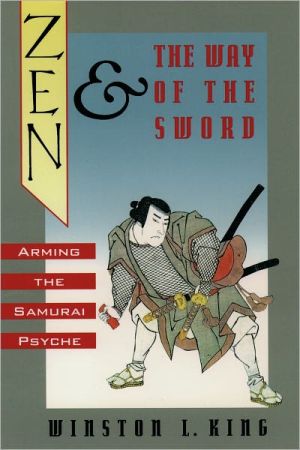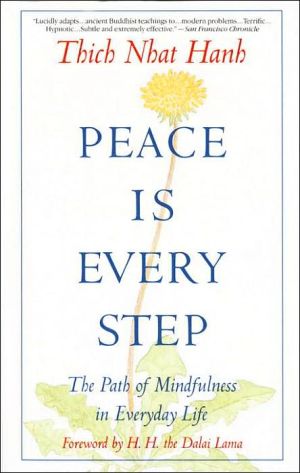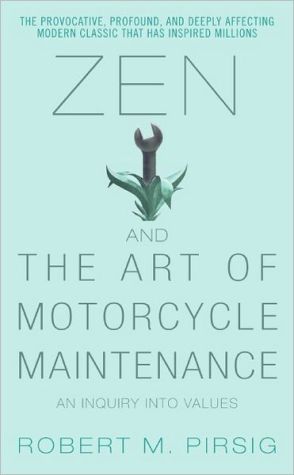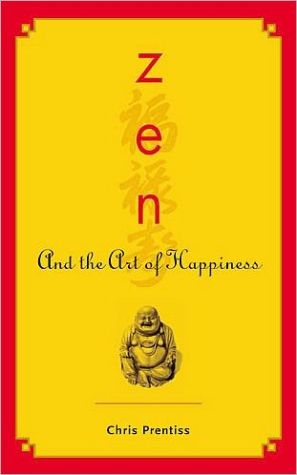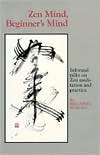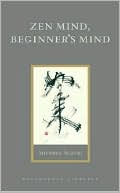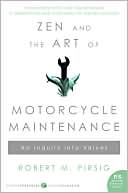Zen and the Way of the Sword: Arming the Samurai Psyche
Zen--serene, contemplative, a discipline of meditation associated with painting, rock gardens, and flower arranging--seems an odd ingredient in the martial psyche of the Japanese samurai. "One who is a samurai must before all things keep constantly in mind...the fact that he has to die," wrote a seventeenth-century warrior. "That is his chief business." But the demands of that "business," writes Winston King, found the perfect philosophical match in the teachings of Zen Buddhism.\ In Zen...
Search in google:
Zen—serene, contemplative, a discipline of meditation associated with painting, rock gardens, and flower arranging—seems an odd ingredient in the martial psyche of the Japanese samurai. "One who is a samurai must before all things keep constantly in mind...the fact that he has to die," wrote a seventeenth-century warrior. "That is his chief business." But the demands of that "business," writes Winston King, found the perfect philosophical match in the teachings of Zen Buddhism. In Zen and the Way of the Sword, King offers a fascinating look into the mind of the samurai swordsman in a far-reaching account of the role of Zen in the thought, culture, and the martial arts of Japan's soldier elite. An esteemed scholar of Eastern religions, King deftly traces the development of Zen and discusses the personal nature of its practice, its emphasis on individual discovery and attainment. He then presents an accomplished capsule history of the samurai class, from its rise in the middle ages to formal abolition in the nineteenth century—an account filled with details of wars, political maneuvering, and cultural achievements. King also looks at the arms and vocation of the individual samurai, placing the details of armor and weapons in the context of the samurai conception of warfare. In particular, King focuses on the sword—the soul of the samurai, as it was called—describing how it was forged, the honor given famous swordsmiths, the rise of schools of swordsmanship, and breathtaking feats of the great swordsmen. Throughout, King shows how the samurai cultivated Zen, relating its teaching of a free and spontaneous mind to the experience of a warrior in individual combat, and finding philosophical strength in Zen as they prepared themselves for death. "What mind can penetrate his opponent's mind?" one authority has written. "It is a mind that has been trained and cultivated to the point of detachment with perfect freedom....His mind should reflect his opponent's mind like water reflecting the moon." In other words, a mind trained by Zen. King goes on to trace the role of Zen in samurai life through the peaceful eighteenth and nineteenth centuries, examining the absorption of Zen into World War II psychology and broader Japanese culture. Throughout, he provides a thoughtful perspective, both sympathetic and aware of the ethical problems inherent in a school of Buddhism turned to the needs of a military class. A scholarly, absorbing account, Zen and the Way of the Sword provides fascinating insight into the samurai ethos, and the culture of Japan today. Journal of Buddhist Ethics \\ - Charles B. Jones It must be said at the outset that this is not strictly an academic book....[I]t is apparently [intended] as a popular introduction to the place of Zen in samurai life and culture. It is written in highly accessible language, with copious illustrations of swordmaking techniques, fighting styles, and core values....It is a good survey of the state of the field in western scholarship, and a good book for those teaching undergraduates who may have an interest in Zen and the martial arts.
A Note on the TextIntroduction3Pt. IZen and Japan1The Zen Discipline and Experience92The Japanese Warrior Adopts Zen27Pt. IIThe Japanese Samurai3The Warrior in Japanese History374The Samurai Sword615Samurai Swordsmanship956Bushido: The Samurai Ethos123Pt. IIISamurai Zen7A Stable Inner Platform of Mental Control1598The Zen Sword: A Modern Interpretation179Pt. IVThe Samurai Heritage9The Samurai of the Twentieth Century19510The Life-giving "Sword" of the Martial Arts231Postscript253Bibliography255Index259
\ Charles B. JonesIt must be said at the outset that this is not strictly an academic book....[I]t is apparently [intended] as a popular introduction to the place of Zen in samurai life and culture. It is written in highly accessible language, with copious illustrations of swordmaking techniques, fighting styles, and core values....It is a good survey of the state of the field in western scholarship, and a good book for those teaching undergraduates who may have an interest in Zen and the martial arts.\ —Journal of Buddhist Ethics \\\ \ \ \ \ Charles B. JonesIt must be said at the outset that this is not strictly an academic book....[I]t is apparently [intended] as a popular introduction to the place of Zen in samurai life and culture. It is written in highly accessible language, with copious illustrations of swordmaking techniques, fighting styles, and core values....It is a good survey of the state of the field in western scholarship, and a good book for those teaching undergraduates who may have an interest in Zen and the martial arts.\ — Journal of Buddhist Ethics\ \ \ Kirkus ReviewsA superb analysis by King (Religion/Vanderbilt University), a renowned scholar of Far Eastern religions, of the curious marriage between Zen Buddhism and samurai fighting. The contradiction is glaring: Zen emphasizes tranquility and meditation, whereas the samurai code deals with bloodshed. How then did Zen become the religion of the Japanese warrior? King locates the roots of Zen in Taoism, whose influence led to a form of Buddhism that emphasized practicality, surprise, and irreverence. By the 13th century, Zen had been adopted by the Japanese ruling elite, and most Zen monasteries boasted their own large standing armies (this despite the Buddha's injunction against killing). Meanwhile, the samurai class rose to power under the aegis of the shogun, valuing absolute obedience, spartan self-control, and precision in killing—a perfect match for Zen's own emphasis on exactness and "visceral awareness." King expands at fascinating length on Zen/samurai swordsmanship, including the startling variety of sword strokes; details of how Japanese blacksmiths produce the incomparable samurai sword (the best in the world); and a cut-by-cut account of sepukku, or ritual suicide. As he points out, the Zen/samurai spirit still flourishes in Japan, finding recent manifestation both in the kamikaze attacks of WW II and in the authoritarianism of large corporations. In a controversial but persuasive argument, King suggests that D.T. Suzuki, the most famous interpreter of Zen to the West, sanitized the Zen/samurai connection and that Zen, because it rejects the scriptural and literary traditions of more mainstream Buddhism, lacks "intrinsic ethical quality" and thus can be adapted to fit anyorientation—whether for peace or war. Daring and stylish—a true Zen/samurai stroke of religious scholarship. (Illustrations)\ \
